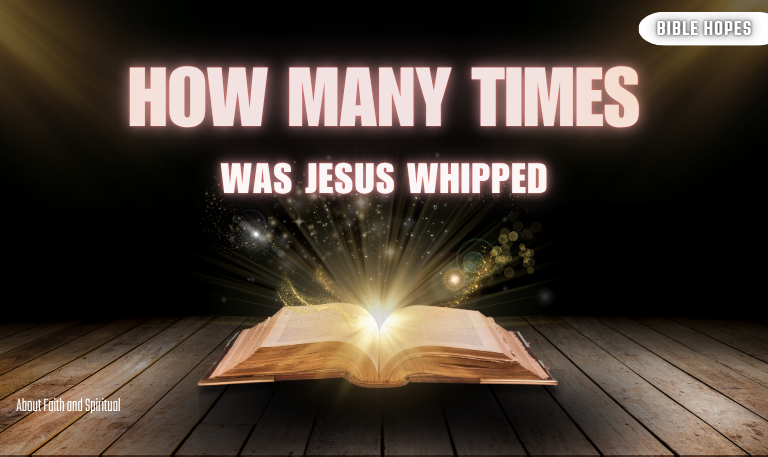The words “Allah” and “God” are often used interchangeably, but they carry deep theological, linguistic, and cultural meanings that differ across religions. In this comprehensive guide, we explore the nuances between these two terms, breaking down their origins, theological significance, and how they shape religious beliefs and practices. Our goal is to provide an authoritative, well-researched article about Allah vs God that clarifies these terms while offering insights that will resonate with both religious scholars and general readers.
The Significance of Allah and God
The names “Allah” and “God” are central to two of the world’s largest monotheistic religions: Islam and Christianity. While they may seem to refer to the same Supreme Being, a deeper understanding reveals both similarities and important distinctions. This article explores these complexities, providing insights into their linguistic, theological, and cultural significance.
Read Also: When Is Jesus Birthday
What is Allah?
“Allah” is the Arabic word for God, used primarily in Islam. It is derived from the root word “Ilah,” which means a deity or god. However, “Allah” refers to the one true God, and in Arabic, it is unique in its usage because it refers to the singular, eternal, and ultimate deity, beyond human comprehension.
The Meaning of Allah in Islam
Oneness of God (Tawhid): Allah represents the absolute oneness and uniqueness of God in Islam. Unlike other deities or gods, Allah cannot be divided into parts, nor is He depicted in any form. This aligns with the Islamic principle of Tawhid, which asserts the indivisibility of Allah.
Attributes of Allah: Islam teaches that Allah possesses 99 names, each reflecting different attributes such as “The Merciful,” “The All-Knowing,” and “The Creator.” These names help Muslims understand Allah’s multifaceted nature and guide their worship.
What is God?
In Christianity and other Abrahamic religions, “God” is used to refer to the Supreme Being who is the creator and ruler of the universe. The term “God” is more general than “Allah” and is often used in a variety of languages and cultures. While the word “God” is used in Christianity, Judaism, and other religions, each tradition emphasizes different aspects of God’s nature.
God in Christianity
The Trinity: One of the core beliefs of Christianity is the concept of the Trinity: God the Father, God the Son (Jesus Christ), and God the Holy Spirit. This is a fundamental theological difference from Islam, where Allah is indivisible.
God’s Nature: Christianity emphasizes that God is all-powerful, all-knowing, and omnipresent, similar to how Allah is viewed in Islam. However, Christians understand God to be a personal being who can be approached through prayer and a personal relationship with Jesus Christ.
God in Judaism
Monotheism: Judaism, like Islam, teaches strict monotheism. God is viewed as the singular, sovereign Creator of all things. The Jewish understanding of God is closely related to the Islamic concept of Allah, although the terminology and theological frameworks differ.
Linguistic and Etymological Differences
The linguistic distinction between “Allah” and “God” is significant. “Allah” is derived from Arabic, while “God” comes from the Old English word “god,” which itself is rooted in Proto-Germanic gud. Despite their linguistic differences, both words refer to the same concept of the singular, supreme deity in their respective religions.
The Linguistic Roots of Allah
The word “Allah” is a contraction of the Arabic phrase “al-ilah,” which means “the god.” The definite article “al” indicates that Allah is the one and only deity, the exclusive God.
The Linguistic Evolution of God
The English word “God” evolved from ancient languages like Old English, where it was used to refer to any deity. However, in Christianity and Judaism, it became specifically associated with the singular God of these faiths.
Read Also: How Old Is The Bible
Theological Differences: Allah vs God
While “Allah” and “God” both refer to the same supreme deity in their respective religions, the theological perspectives differ. The most significant theological difference between the two is the concept of the Trinity in Christianity and the Tawhid (Oneness) in Islam.
The Trinity in Christianity
The Trinity teaches that God exists as three persons: the Father, the Son (Jesus Christ), and the Holy Spirit, who are all equally God but distinct in their roles. This is a central doctrine in Christian theology, which sets Christianity apart from Islam, where Allah is indivisible and cannot be partitioned into parts.
Tawhid in Islam
In contrast, Tawhid is the Islamic belief in the absolute oneness of Allah. This concept asserts that Allah is singular and cannot be divided into separate persons or manifestations. The Islamic perspective rejects any notion of God having a son or being in human form, which is a significant difference from Christianity.
Shared Attributes: Mercy, Justice, and Omnipotence
Both Allah and God share many of the same attributes, as they are both seen as all-powerful, all-knowing, and infinitely merciful.
Mercy and Compassion
Allah: Islam emphasizes Allah’s mercy through His 99 names, such as “The Merciful” (Ar-Rahman) and “The Compassionate” (Ar-Rahim). Muslims believe that Allah’s mercy transcends His judgment, and He is forgiving of sins when one sincerely repents.
God: In Christianity, God’s mercy is evident in the sacrifice of Jesus Christ, who is believed to have died for the sins of humanity. God’s mercy is extended through grace, allowing believers to be saved and forgiven through faith in Jesus.
Justice
Both Allah and God are described as just, ensuring that good is rewarded and evil is punished. In both religions, divine justice is balanced with mercy, but the ways in which justice is carried out differ based on the religious teachings.
Omnipotence
Both Allah and God are omnipotent, meaning they are all-powerful and can do anything. This attribute underscores their role as the Creator of the universe and supreme rulers of all that exists.
Allah and God in Sacred Texts
The primary texts that define the nature of Allah and God are the Quran for Islam and the Bible for Christianity.
The Quran and Allah
The Quran is the sacred text of Islam and is considered the literal word of Allah. It contains numerous references to Allah’s names and attributes, emphasizing His power, mercy, and justice.
The Bible and God
The Bible is the holy scripture of Christianity and consists of the Old Testament (shared with Judaism) and the New Testament. It describes God’s nature through the teachings of the prophets, especially the life and resurrection of Jesus Christ.
Read Also: Catholic vs Baptist
Common Misconceptions: Are Allah and God the Same?
A common misconception is that Allah and God represent different deities. However, this is incorrect. “Allah” is simply the Arabic term for “God,” and both refer to the same supreme being in their respective religions. The difference lies in the theological understanding of the deity’s nature and attributes.
Are Allah and God the Same?
Yes, in the context of monotheism, both Allah and God represent the singular, ultimate creator of the universe. The misunderstanding arises due to the difference in theological teachings between Islam and Christianity, particularly regarding the nature of God and the role of Jesus Christ in Christianity.
Read Also: How Old Would Jesus Be Today
Allah vs God FAQs
Q: Is Allah the same as God in Christianity?
A: While Allah and God refer to the same singular deity, the concept of God in Christianity includes the Trinity, whereas Islam believes in the absolute oneness of Allah.
Q: Why is God referred to as Allah in Islam?
A: “Allah” is the Arabic word for God, and Muslims use it to refer to the one true God, emphasizing His unity and uniqueness.
Q: Do Muslims believe in the Trinity?
A: No, Islam rejects the concept of the Trinity, emphasizing the oneness of Allah (Tawhid).
Q: What are the key differences between Allah and God?
A: The primary difference lies in the theological interpretation: Christians believe in the Trinity (God as Father, Son, and Holy Spirit), while Islam teaches the absolute oneness of Allah.
Conclusion
The terms “Allah” and “God” are used in different religious contexts, yet they refer to the same ultimate deity. Understanding the theological, linguistic, and cultural differences and similarities between them is essential for fostering interfaith dialogue and mutual respect. By exploring the nuances of these two terms, we gain a deeper understanding of the shared monotheistic roots of Islam and Christianity while appreciating the distinct beliefs that shape each faith.
![Allah vs God | Differences in Islam and Christianity [2025 Guide] 1 Allah-vs-God-Differences-in-Islam-and-Christianity-[2025-Guide]](https://biblehopes.com/wp-content/uploads/2025/06/Allah-vs-God-Differences-in-Islam-and-Christianity-2025-Guide.png)


